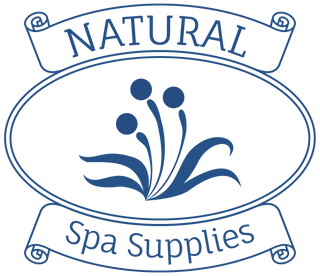The Composition and Properties of Argan Oil
INGREDIENTS Argania Spinosa L.
Virgin, cold pressed Argan Oil.
Main Properties of Argan Oil
Argan Oil is famous as an anti aging oil. The rejeuvenating effects begin from the first usage. This very special oil is high in essential fatty acids and it is also very high on free-radical fighting tocopherols and toctreinols, which again help to combat the processes of aging, excessive dry skin and juvenile acne.
How our Argan Oil is Pressed
We supply machine pressed oil which gives us, a living oil, fine and with a low aroma.
We do not support hand pressed oils - which have a short shelf life and which seem thicker, with a heavy aroma.
We do not supply 'deodorized' argan oil which has been extracted with hexane - a solvent.
What is the fatty acid composition of argan oil?
INGREDIENTS Argania Spinosa L. Nothing else is added to virgin, cold pressed Argan Oil. The following is a list of some of the key compounds naturally present in Argan Oil.
Fatty Acids 99% (Major constituents)
Oleic (Omega 9) 42.8%
Linoleic (Omega 6) 36.8%
Linolenic 36.60%
Palmitic 12.0%
Stearic 6.0%
Arachidonic acid
Insaponifiables 1% (Minor Constituents)
- Tocopherols (Vitamin E) about 60mg/100g, comprising Alpha 5-69%, Delta 6-12%, Gamma about 75%
- Sterols 147mg/100g of which Schottenol is 51% and Spinasterol 40%. Sterols are natural anti-inflammatory.
- Tocotrienols
- Squalene 0.3%
- Xanthophylls 42% of the unsaponifiable fraction
- Tripterpenic alcohols
- Phenolic antioxidants
Oleic Acid (omega-9) is an essential fatty acid (can not be made by the body) of the monosaturated group. It can be derived from both plant and animal sources. It is found in all cell membranes where it helps the cells to perform their vital functions. It has an anti-inflamatory function, decreases wrinkles and helps in skin regeneration.
Linoleic Acid (omega-6) Also an essential fatty acid and precursor of vitamin F, linoleic acid helps to preserve cell integrity and stimulates the contractions of blood vessels reducing inflammation. It is associated with reducing the signs of eczema, psoriasis and with clearing acne and rosacea. Argan oil contains three times the quantity of linoleic acid as olive oil. There is an excess of oleic acid in the sebum of acne sufferers, linoleic acid can help restore the fluidity of the sebum, giving relief.
Vitamin E contains important anti-oxidants. It is a fat soluable vitamin which exists in 8 different forms (isomers), Alpha, Beta, Delta and Gamma-Tocopherols and Alpha, Beta, Delta, Gamma-Tocotrienols. They are a powerful anti-oxidant protecting the lipid structures from oxidation and free radical damage. In deactivating free radicals they stimulate cell oxygenation. This process restores the hydrophillic layer making the skin smoother, more elastic and more radiant reducing the appearance of fine lines and wrinkles. In Argan oil 75mg/100g of the total tocopherols is gamma-tocpherol which protects against nitrogen-based free radicals associated with ageing. Gamma-tocopheral is currently being studied as a cancer preventative. Tocotrienols, also found in argan oil, has a 50 times greater anti-oxidant potential than that of tocopherols!
Squalene which regenerates, nourishes and hydrates the skin is contained in high quantities in Argan Oil (310mg/100g). Squalene forms 5-8% of the sebum which is naturally secreted by the skin to provide a protective and softening barrier on the surface, it binds and absorbs fat soluble toxins helping the skin to eliminate them from the body. Sometimes the sebum produced by the body is too thick, clogging the pores - squalene helps restore the viscuous balance and self-cleansing of the pores, which would otherwise invite bacterial infection. Importantly squalene deactivates a kind of free radical caused by exposure to UV radiation, it has antibacterial properties and is suggested to protect against skin cancer.
Sterols boost moisture retention in hair and skin. In Argan Oil the plant-based sterols comprise Schottenol (48% of the sterols) with anticarcinogenic potential, and Spinasterol (40% of the sterols) with probable anti-tumeric effects, they may also help the T-cells of the immune system destroy cells containing viruses. These sterols are rarely found in vegetable oil and although a similar substances from shark livers is being marketed, ethical consumers should shy away from the animal derived form,a form of carotine. This has been shown to modify the skin's response to ultra-violet radiation.
Xanthophyll. While many high-end and pricey cosmetics contain these compounds, often in isolation and often synthetically formed, nothing can be better than to use the 'whole' living oil which contains a natural range of active constituents to make the most of the symbiotic effects.
Luckily you don't have to understand how argan oil works to notice its effects as soon as you start using it!



